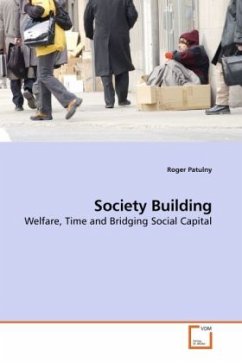Have we built social societies? After decades of public institutional reform, growing materialism, increasing inequality, mounting stigma towards the unemployed and single mothers, and increasing work pressure, how social are we now? Have we built the kinds of societies in which people have the time and inclination to volunteer widely, socialise and trust others? This book critically examines the concept of bridging social capital as an indicator of the strength of societies. Using international survey data, bridging social capital is compared across three major regimes of welfare; market-focused liberal, status-focused corporatist, and equality-focused social democratic. The idea that welfare builds society and promotes social capital through avoiding excesses of commodification and market dependency; stratification and inequality/stigma; and familialisation and paternalistic family dependency is tested. This book reveals that welfare regimes and social capital are most strongly associated under universal rather than targeted conditions.
Bitte wählen Sie Ihr Anliegen aus.
Rechnungen
Retourenschein anfordern
Bestellstatus
Storno








